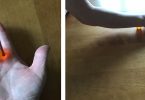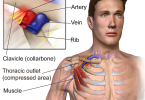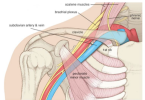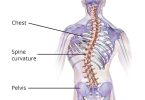Submitted by Fowler Kennedy Sport Medicine Clinic Staff
It may have been a dramatic and obvious hit on the field or on the ice. It may be unclear when or what even happened. Either way, what is undeniable is that concussions are a significant and growing concern, especially for teenagers and young adults involved in sport. In fact, traumatic brain injuries, regardless of their cause and regardless of whether diagnosed as mild or serious, are now seen as a major public health concern.
While the focus has traditionally been on short-term impacts like being kept out of the game, experts like those at the Fowler Kennedy Sport Medicine Clinic in London, Ontario are focusing with research partners on medium-term disruptions in education, sport and life in general, and on the long-term concerns around repeat concussions increasing the risk in later life for dementia, Parkinson’s disease, and/or depression.
For years, athletes, coaches and fans have talked about ‘getting your bell rung.’ Concussions have been associated with signs and symptoms such as nausea or vomiting, loss of consciousness, amnesia surrounding an event, ringing in the ears and slurred speech. But those diagnosing and treating concussions know the symptoms can be much more subtle, and insidious.
“While there are patients that present obvious signs and symptoms, what is clear to those of us dealing with these injuries daily is that many young athletes are experiencing symptoms that go unrecognized, such as feeling like they are in a fog and being generally fatigued,” says Dr. Lisa Fischer. “These symptoms and others can be seen as natural for individuals living very active lives and when school grades aren’t dramatically impacted; many patients learn to live with symptoms.”
Patients, parents, coaches and teachers are asked to look for symptoms such as feelings of pressure in the head, concentration challenges, sensitivity to light and noise, irritability and other personality changes, sleep disturbances and psychological problems including depression.
“The reality is that many of these symptoms can be attributed to age, other illnesses or lifestyle choices,” Fischer said.
The word concussion itself is derived from the Latin concutere (‘to shake violently’) or concussus (action of striking together), and so it follows that common causes of concussion include sport injuries, bicycle or car accidents, and falls. In addition to a direct blow to the head, concussions may also be caused by acceleration forces such as whiplash, a relatively common injury that occurs to a person’s neck including impacts to bone structures and soft tissues.
“Those involved in sport should be focused on athletes involved in collisions, hits or other events that result in sudden acceleration,” said Dr. Kevin Asem of Fowler Kennedy. “Actively monitoring for, and being mindful of the broad range of signs associated with concussion after such incidents are critical to early diagnosis and treatment.”
At Fowler Kennedy, the patient comes first. Time is taken to diagnose and educate patients, and there is ongoing monitoring to determine progress. Traditional treatment methods include monitoring as well as physical and cognitive rest (reduction of such activities as school work, playing video games and text messaging). Approximately 70-80% of adult patients with sport concussion improve within 7-10 days.
“The cornerstone of treatment for acute injury is rest-both physical and cognitive,” says Fischer. “Our team at Fowler Kennedy also uses early intervention strategies including visual and balance rehabilitation, managing neck-related issues, physiotherapy, focusing on safe re-introduction to activity and return to play strategies.”
In addition to diagnosis and treatment, Fowler Kennedy is working with partners in research initiatives. For example, with the Children’s Health Foundation, Fowler Kennedy is engaged in a project related to blood and imaging biomarkers in young male hockey players. This research has considerable promise in understanding mild traumatic brain injuries.
Due to varying definitions and possible underreporting, the rate at which concussions occur in sport annually is not accurately known. But by being at the forefront of diagnosis, treatment and research, Fowler Kennedy, along with partners such as St. Joseph’s Health Care, London Health Science Centre, the Children’s Health Foundation, Western University and See The Line, are putting patients first and finding a path forward to return patients to healthy lives.
www.fowlerkennedy.com






